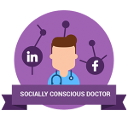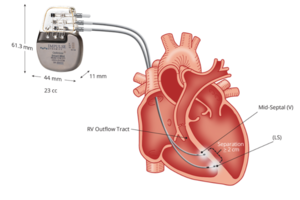![]() EXPERT
EXPERT
Emad F. Aziz, DO, MB ChB, FACC
Cardiac Electrophysiologist
- Newark, New Jersey
- College of Osteopathic Medicine - New York Institute of Technology
- Accepting new patients
Advancements in Device Therapy for Heart Failure, The Rutgers New Jersey medical School and Arrhythmia Institute at University Hospital Experience
Revolutionizing Heart Failure Management: The Rise of Cardiac Contractility Modulation (CCM) In the realm of cardiovascular health, innovation is a beacon of hope for millions...
Leadless Pacemaker Experience at Rutgers New Jersey medical School and Arrhythmia Institute at University Hospital
Dr. Aziz, as Chief of Cardiac Electrophysiology at Rutgers New Jersey Medical School, has been at the forefront of adopting and embracing leadless pacemaker technology for our...
Direct Oral Anticoagulants (DOAC's)
The novel drugs are called dabigatran (Pradaxa), rivaroxaban (Xarelto), apixaban (Eliquis), and edoxaban (Lixiana). The trade names are those in parenthesis. Edoxaban was the...
Questions About Heart Rate
1. What is a heart rate? What does it indicate, and why is it important? Heart rate (HR) is the number of heart beats calculated per minute. The heart is the source of life...
Atrial Fibrillation
Atrial fibrillation is the most common irregular heart rhythm abnormality. It is caused by abnormal electrical signals that are causing the heart to beat irregularly and usually...
What's involved in an EP study?
-Your groin and/or neck area will be cleaned and numbing medicine (anesthetic) will be applied to the skin.
-The cardiologist will then place several IVs (called sheaths) into the groin or neck area. Once these IVs are in place, wires or electrodes can be passed through the sheaths into your body.
-The doctor uses moving X-ray images to guide the catheter into the heart and place the electrodes in the right places.
-The electrodes pick up the heart's electrical signals.
-Electrical signals from the electrodes may be used to make the heart skip beats or produce an abnormal heart rhythm. This can help the doctor understand more about what is causing the abnormal heart rhythm or where in the heart it is starting.
You may also be given medicines that may also be used for the same purpose.
How does an ECG diagnose atrial fibrillation?
Can I drink coffee before my echocardiogram?
High heart rate after MRI. Is this normal?
What is the treatment for arrhythmia?
How is atrial fibrillation monitored?
What does a cardiac electrophysiologist do?
Do we need to visit a cardiologist for treating arrhythmia?
What causes irregular heartbeats?
Does constant coughing indicate a heart problem?
Why does my health tracker show high heart rate even while I am resting?
My mother has an arrhythmia. How will it be monitored?
I am experiencing a shortness of breath while walking. Should I get my ECG done?
How does wine strengthen the heart?
Red wine in general is thought to be healthier because it contains antioxidative components like resveratrol, proanthocyanidine, quarcetin, etc. and these active components exert protective functions like free radical scavenging effects, decreasing the oxidative stress and reducing the inflammatory atherosclerotic lesions.
That been said, drinking more alcohol increases such dangers as alcoholism, high blood pressure, obesity, stroke, breast cancer, suicide and accidents.
What is cardiac cachexia? Is it fatal?
The condition also has serious effects on many parts of the body, including the digestive tract, lungs, and heart, and the body’s ability to make blood cells. You will need an expert heart failure specialist who work closely with a nutritionist to help tackle this issue.









